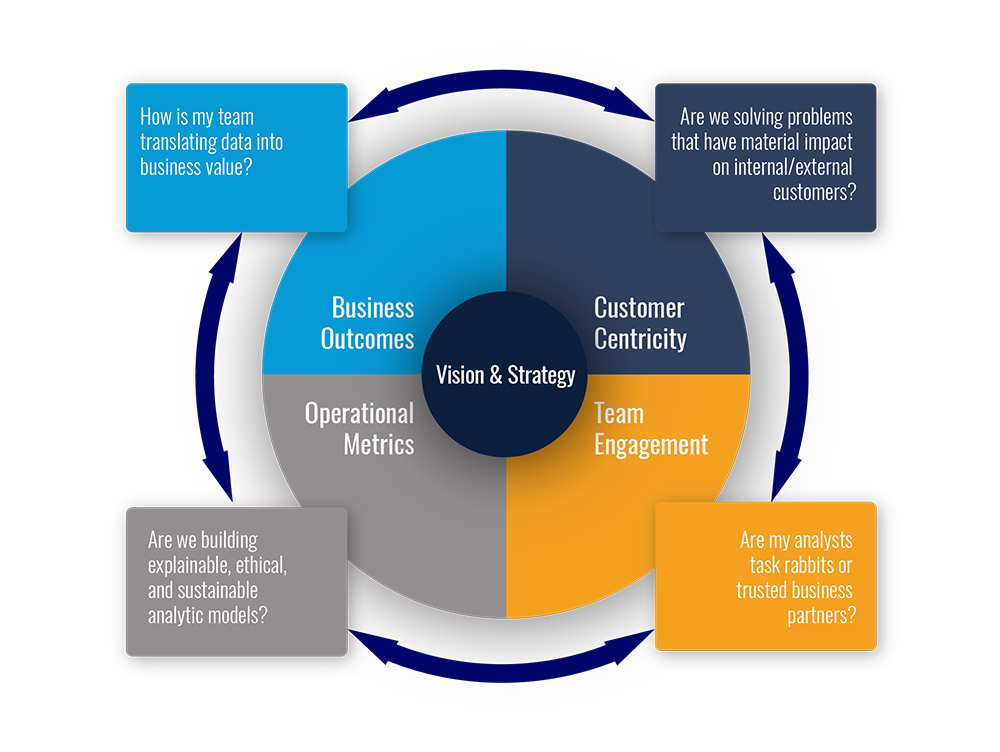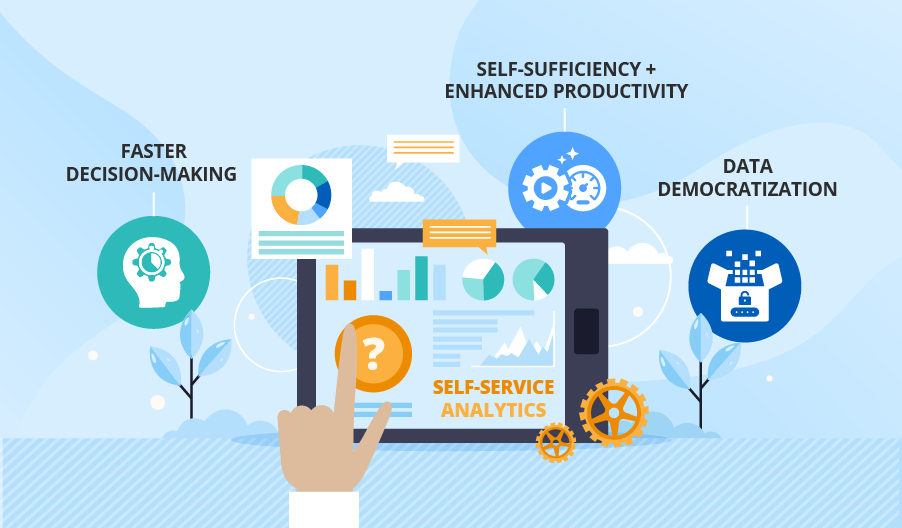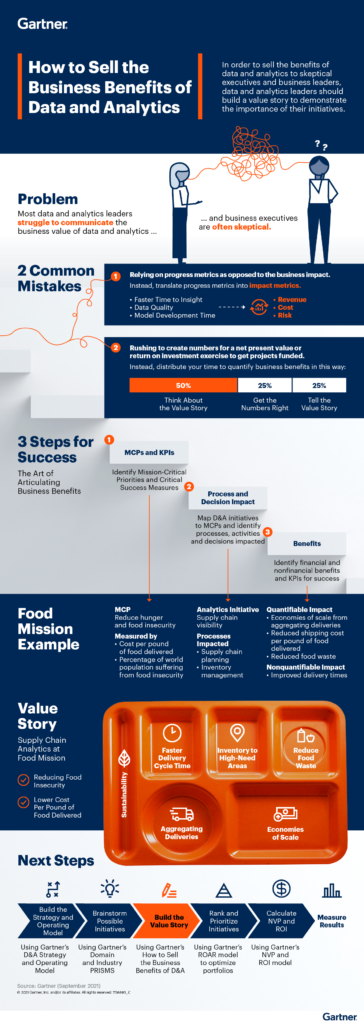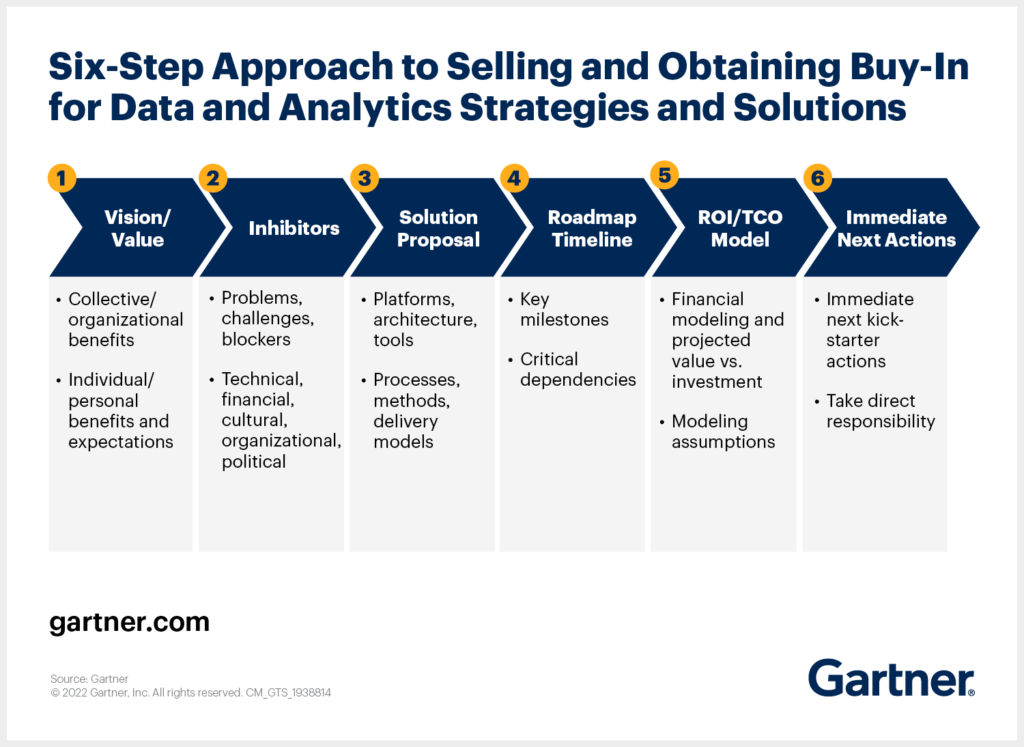Welcome to the world of data analytics, where every business is striving to make data-driven decisions. With the rise of big data and advanced analytics techniques, businesses are now able to extract insights from vast amounts of data, enabling them to make informed decisions. However, measuring the success of data analytics is not an easy task. In fact, it can be quite challenging, but it is crucial for businesses to understand how to measure the success of their analytics efforts.
In this article, we will explore the various metrics that businesses can use to measure the success of their data analytics initiatives. We will discuss the importance of defining clear goals and objectives, selecting the right metrics, and using data visualization tools to track progress. We will also explore the role of data quality and governance in measuring analytics success. So, whether you are new to data analytics or an experienced practitioner, this article is for you. Let’s get started!
Measuring success of data analytics requires understanding the goals of data analysis and tracking the progress towards those goals. Data analytics success can be tracked through metrics such as accuracy of analysis, cost savings, and improvement of customer satisfaction. It is important to create KPIs such as these to measure performance. Additionally, it is necessary to ensure data accuracy and ensure that data is stored securely.
To measure success of data analytics:
- Understand the goals of the data analysis
- Create KPIs to track performance
- Monitor accuracy of data analysis
- Track cost savings and customer satisfaction
- Ensure data accuracy and security

Measuring the Success of Data Analytics
Data analytics is an important tool for businesses and organizations to gain deeper insights into customer behavior, operations, and performance. As such, it is important to measure the success of data analytics efforts to ensure that the desired objectives are achieved. This article outlines a few key metrics that can be used to assess the success of data analytics projects.
Analytical Performance
Analytical performance is the degree to which analytics-driven decisions and actions yield outcomes that meet organizational objectives. To measure analytical performance, organizations should track metrics such as the accuracy and reliability of data-driven insights and the effectiveness of decisions made on the basis of those insights. Additionally, organizations should track the speed and cost of data analytics projects to ensure that they are meeting their desired timelines and budgets.
Organizations can also measure the impact of data analytics on organizational performance. This includes tracking the impact of analytics-driven decisions on customer satisfaction, operational efficiency, and other measures of organizational performance. By tracking these metrics over time, organizations can gain insights into the effectiveness of their data analytics efforts.
Data Quality
Data quality is an important factor in the success of data analytics projects. Poorly structured or incomplete data can lead to inaccurate insights and ineffective decision-making. As such, organizations should track the quality of the data that is used in their data analytics efforts, such as completeness, accuracy, and consistency. By tracking these metrics over time, organizations can gain insights into the quality of the data they are using and make adjustments as needed.
Organizations should also track the accuracy of the data that is used in their data analytics efforts. This includes tracking the accuracy of the predictions made on the basis of the data, as well as tracking the accuracy of the insights generated from the data. By tracking these metrics over time, organizations can monitor the accuracy of their data analytics efforts and make adjustments as needed.
User Engagement
User engagement is an important metric for measuring the success of data analytics projects. Organizations should track user engagement metrics, such as the number of users interacting with their data analytics applications and the frequency of user interactions. By tracking these metrics over time, organizations can gain insights into the effectiveness of their data analytics efforts.
Organizations should also track the effectiveness of user onboarding and training for their data analytics applications. This includes tracking the time it takes for users to become proficient in the application and the effectiveness of the user onboarding and training materials. By tracking these metrics over time, organizations can monitor the effectiveness of their data analytics applications and make adjustments as needed.
Data Governance
Data governance is an important factor in the success of data analytics projects. Organizations should track the effectiveness of their data governance processes, such as the accuracy and completeness of their data policies and the effectiveness of their data security measures. By tracking these metrics over time, organizations can gain insights into the effectiveness of their data governance processes and make adjustments as needed.
Organizations should also track the effectiveness of their data quality efforts. This includes tracking the accuracy and completeness of the data that is used in their data analytics efforts, as well as the accuracy of the predictions made on the basis of the data. By tracking these metrics over time, organizations can gain insights into the effectiveness of their data quality efforts and make adjustments as needed.
Frequently Asked Questions
Data analytics is an important part of any business. Knowing how to measure success of data analytics is important in order to make sure that the data is being used effectively and to ensure that the business is making the best use of its data.
What are the best ways to measure the success of data analytics?
The best ways to measure the success of data analytics depends on the goals that the business has set for itself. Generally speaking, some of the ways to measure the success of data analytics include looking at trends in user behavior, tracking changes in customer engagement, and monitoring progress towards goals. For example, if a business is trying to increase customer engagement, they can track the number of people who have interacted with their product or service over the course of the data analytics project. This will help to identify any areas that need improvement or any areas that are underperforming.
Another way to measure the success of data analytics is to look at the financial impact. For example, if a business is trying to increase customer retention, they can track the amount of revenue generated from customers that have interacted with the product or service over the course of the data analytics project. This will help to assess the success of the project and to identify any opportunities for improvement.
What metrics should be used to measure the success of data analytics?
The metrics used to measure the success of data analytics will depend on the goals of the business. Common metrics include customer engagement, customer retention, customer acquisition, and customer satisfaction. Additionally, businesses can also look at metrics such as conversions, revenue generated, and user activity.
Companies should also consider the cost associated with the data analytics project. This includes the cost of software and hardware, as well as the cost of the data analytics team. By calculating the return on investment (ROI), businesses will be able to determine the cost-effectiveness of the project.
What tools can be used to measure the success of data analytics?
There are a variety of tools that can be used to measure the success of data analytics. These include analytics software such as Google Analytics, Tableau, and Microsoft Power BI. Additionally, companies can use customer relationship management (CRM) software to track customer engagement and customer satisfaction.
Businesses should also consider using machine learning and artificial intelligence (AI) to analyze large datasets and to identify patterns that can help to improve the success of the data analytics project. Additionally, companies can use predictive analytics to forecast future trends and to identify opportunities for improvement.
How can businesses use data analytics to improve their operations?
Data analytics can be used to improve a business’s operations in a number of ways. For example, businesses can use data analytics to identify areas of inefficiency and to improve customer service. Additionally, businesses can use data analytics to optimize marketing campaigns, to identify new opportunities, and to increase customer retention.
Finally, businesses can use data analytics to gain valuable insights into customer behavior. By analyzing customer data, businesses can identify trends and patterns that can help to inform decisions related to product development, pricing, and marketing strategies.
What are the benefits of using data analytics?
The primary benefit of using data analytics is that it can help businesses gain valuable insights into their customers and operations. By analyzing data, businesses can identify trends and patterns that can help to inform decisions related to product development, pricing, and marketing strategies. Additionally, data analytics can help businesses to optimize their operations and to identify areas of inefficiency.
Data analytics can also be used to improve customer service and to increase customer retention. By analyzing customer data, businesses can identify customer needs and preferences and can tailor their services and marketing efforts to better serve their customers. Finally, data analytics can be used to forecast future trends and to identify opportunities for improvement.
In conclusion, measuring the success of data analytics is crucial for businesses to understand their performance and make informed decisions. It is important to define clear goals and objectives before embarking on any data analytics project. This ensures that the right data is collected and analyzed to provide meaningful insights. The use of key performance indicators (KPIs) and benchmarks can help in evaluating the effectiveness of the data analytics strategy. Continuous monitoring and analysis of data can identify areas of improvement and opportunities for growth.
To sum up, data analytics has become an integral part of modern businesses. Measuring its success is essential to gain a competitive edge in the market. By understanding the importance of setting clear objectives, using the right metrics, and continuously monitoring and analyzing data, businesses can unlock valuable insights and drive growth. In conclusion, the success of data analytics is not just about collecting data, it is about making informed decisions that drive results.



